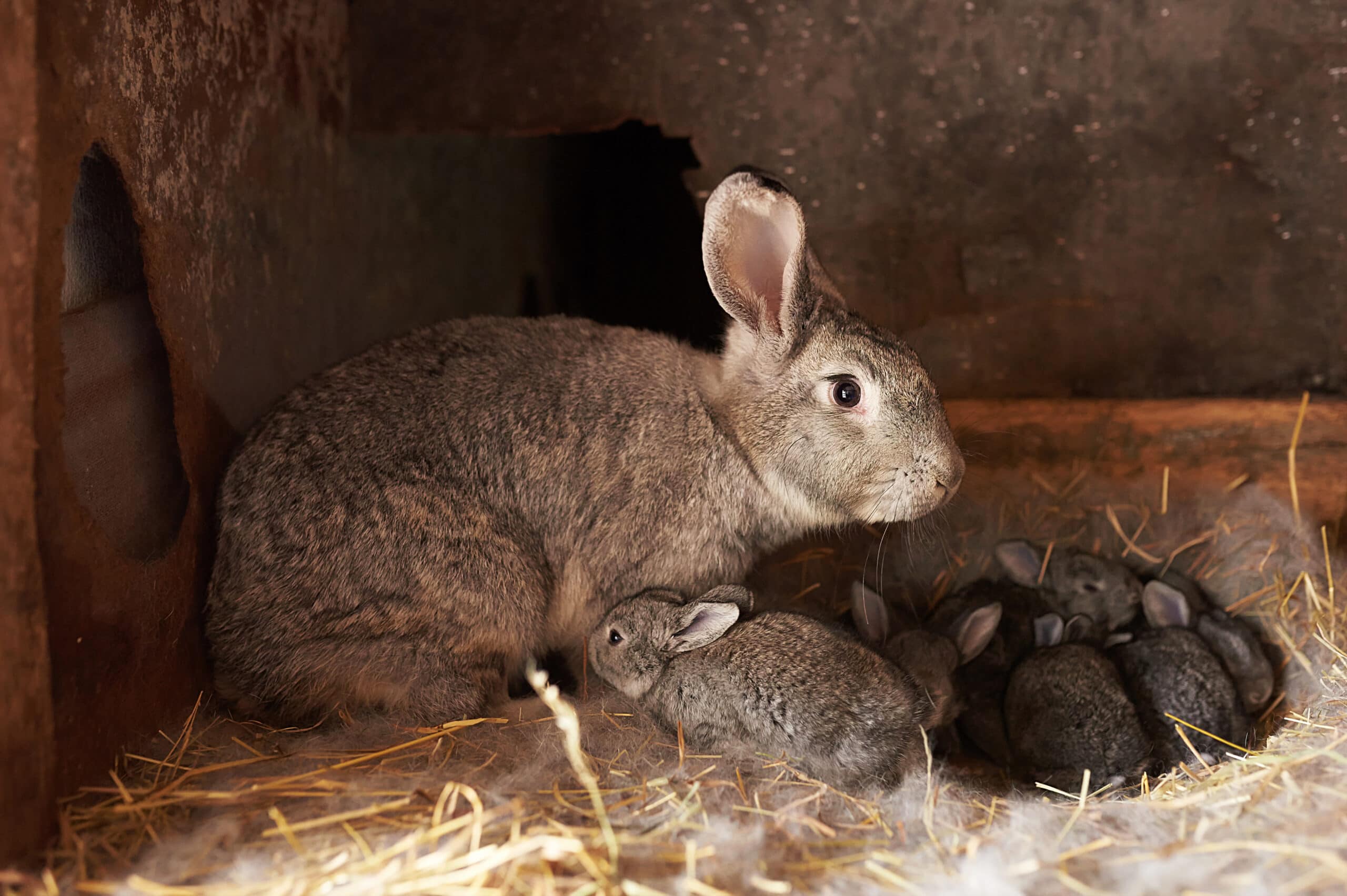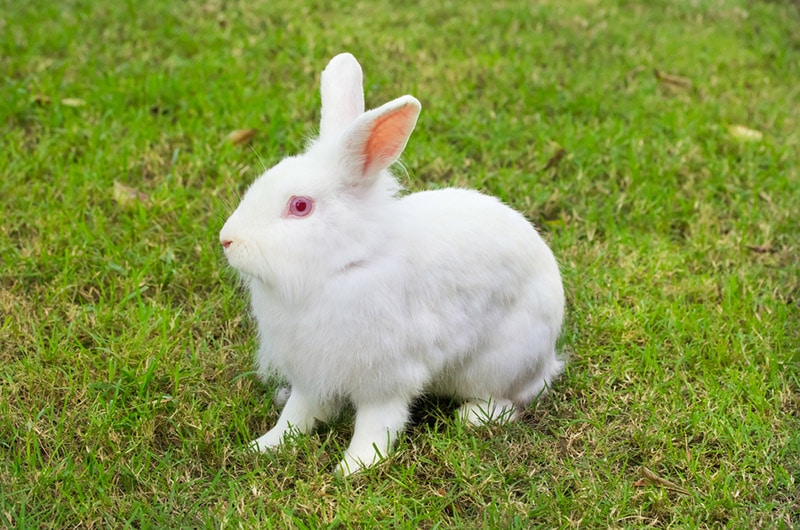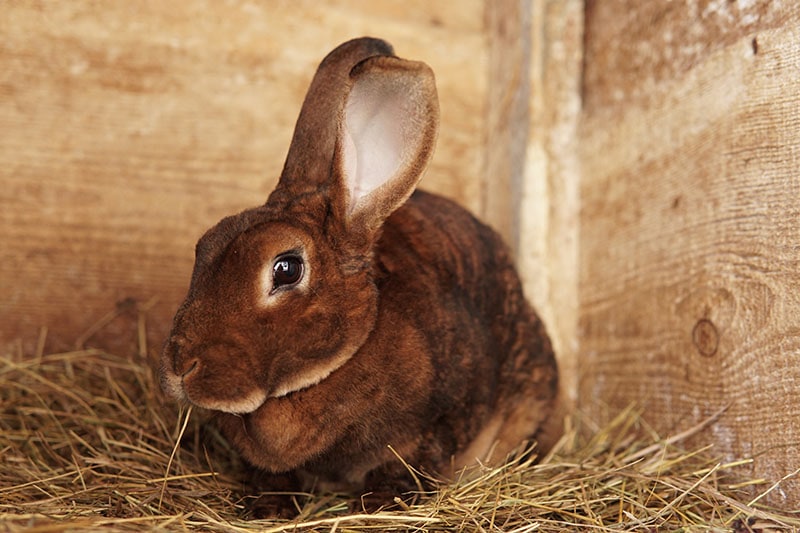Why Do Rabbits Grind Their Teeth? Vet Reviewed Reasons
Updated on
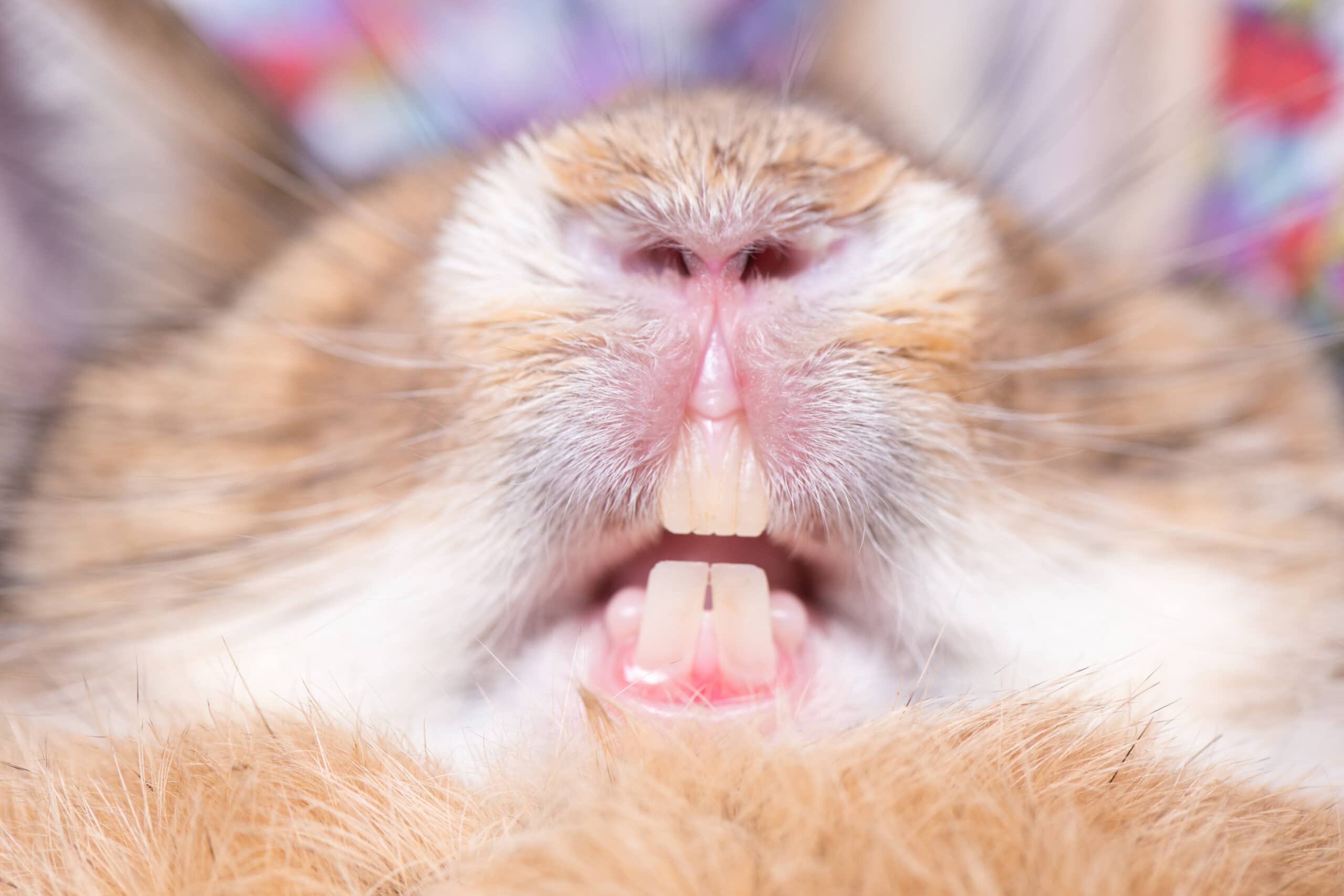
Anyone who’s owned a rabbit knows that they have a habit of grinding their teeth, but it can be tricky to pinpoint why exactly they do it. Unlike other animals, rabbits’ teeth constantly grow over their life—up to 1 centimeter per month! 1 Without chewing or grinding, it can lead to a painful overbite. To encourage them to wear their teeth down, nature compels rabbits to grind their teeth for several different reasons. Check them out down below.
The 5 Common Reasons Why Do Rabbits Grind Their Teeth
1. Happiness & Relaxation
A happy, chill bunny grinds their teeth as a sign of contentment, similar to a cat purring. The low chattering noise you hear when you pet your rabbit is likely their teeth grinding together, but this doesn’t wear them away as much as the other reasons below. Petting them might elicit this sort of low grinding too. If your bunny is loafing around and this type of grinding isn’t accompanied by signs of pain, you have nothing to worry about.
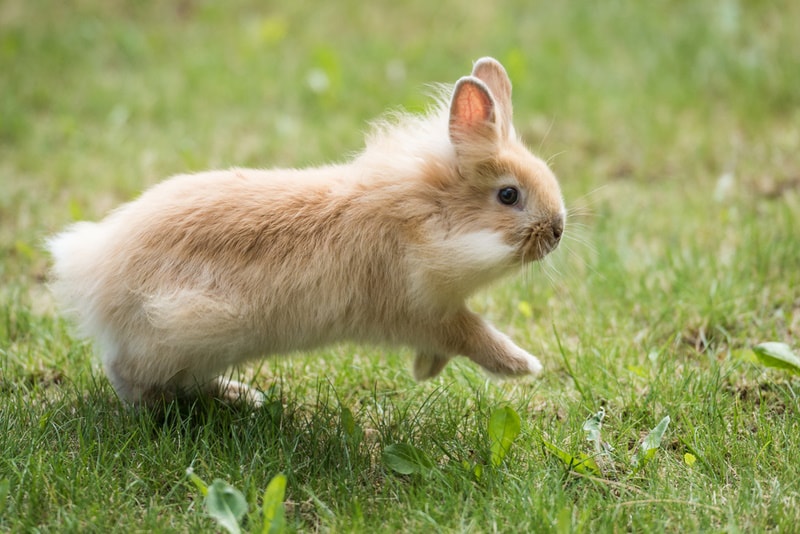
2. Stress & Anxiety
Another very common reason for bunny teeth grinding is stress. Think of how some people bite their nails. Rabbits whose needs aren’t being met will clench and grind their teeth, which can cause pain. Diagnosing the source of your rabbit’s stress can be very hard because they’re easily stressed about lots of things.
To give you an idea of why a stressed-out bunny might grind their teeth, look at some commonplace reasons below.
- Small or unsanitary habitat
- Not enough exercise
- Too much bright light around their hutch
- Sudden loud noises
- Being handled too often or too roughly by humans
- Being separated from companion rabbits
3. Signs of Pain
Excessive teeth grinding could be a sign that your furry buddy is experiencing a serious medical issue. This type of teeth grinding comes with other signs, like a refusal to be touched or other odd behavior. Most tellingly, a rabbit in pain doesn’t gently grind their teeth like a happy rabbit. Instead, you may hear clicking or popping noises.
If you suspect your rabbit is battling some sort of painful illness, we recommend consulting a trusted vet to get to the bottom of it. In the meantime, keep an eye out for some other common signs.
- Sitting in a hunched position, unwilling to move
- Bulging or half-closed eyes
- Hyperventilation
- Loss of appetite
- Hiding
- Unusual, sudden aggression
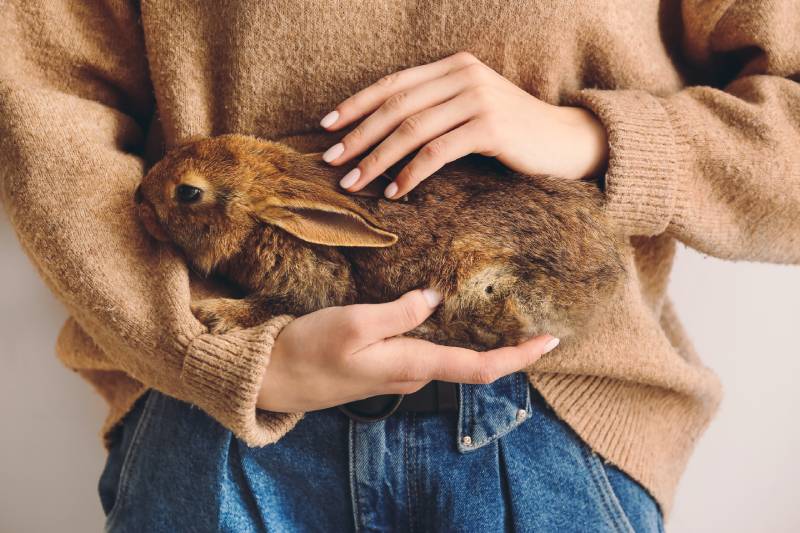
4. Loneliness
Nobody likes being alone, and rabbits are especially social creatures. Lonely bunnies become stressed out and can exhibit destructive behavior like chewing on furniture or carpets. Watch for a notable lack of nose twitching, tensed-up ears, and reclusive behavior. Ideally, rabbits should have at least one companion to keep them company to prevent destructive teeth grinding and other signs of loneliness.
5. Boredom
Bunnies love to play, and not getting enough exercise or mental stimulation can be very detrimental to their mental state. Bored rabbits can display destructive behavior like chewing, overgrooming their fur to the point of balding, and trying to destroy their habitat to escape. If not allowed plenty of time to get their energy out, a sedentary rabbit can gain too much weight and suffer more severe depressive signs like those detailed in other entries above.
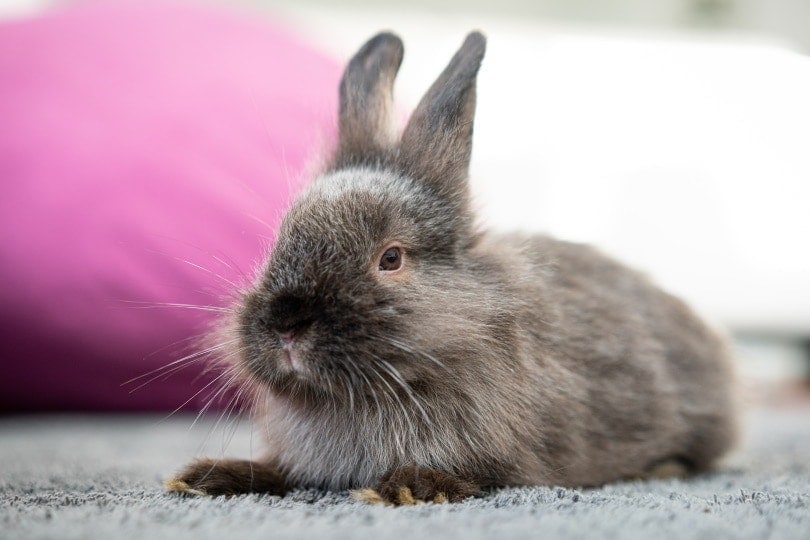
Conclusion
There are lots of reasons that a rabbit will grind their teeth, and each comes with their own unique signs. A happy bunny grinds their teeth at a low, even pleasurable rate, while a rabbit in pain will tightly clench their jaw. Watch for the accompanying signs that go with each one to figure out why your rabbit is grinding its teeth.
Featured Image Credit: Roselynne, Shutterstock


